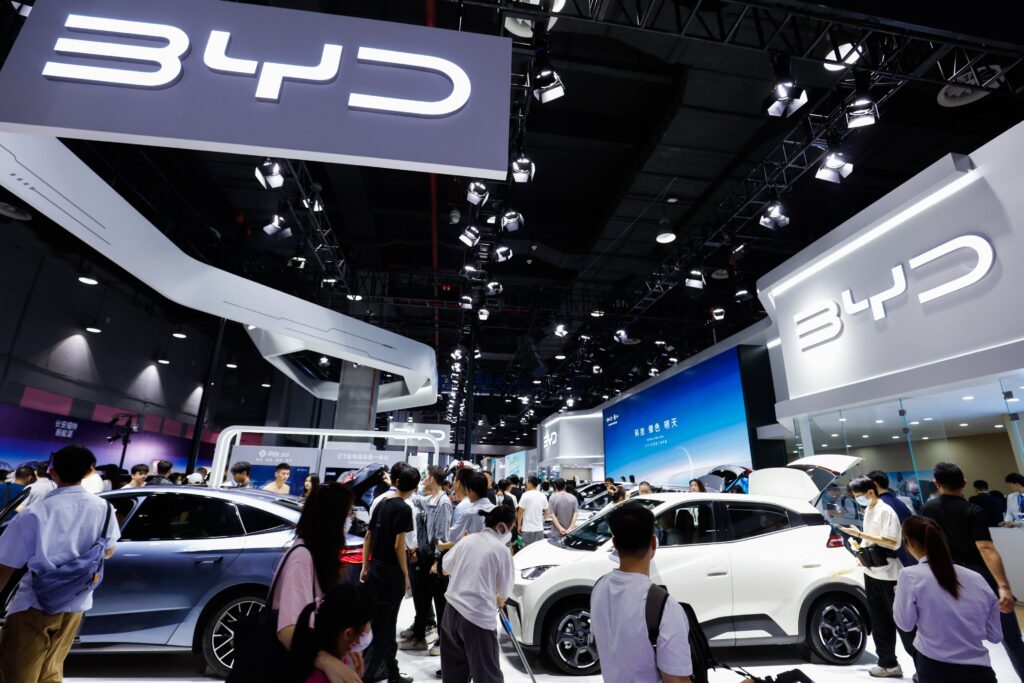Shares of Chinese electric vehicle producer BYD dropped by as much as 8% on Monday. The decline followed disappointing earnings, hit by steep price cuts across the country’s car market.
Quarterly results reveal steep decline
On Friday, BYD announced its net profit fell to 6.4bn yuan ($900m; £660m) between April and June. That marked a 30% decrease compared with the same quarter last year. The company admitted that growing price competition has strained the entire EV sector.
Rivals slash prices to secure sales
The Shenzhen-based automaker now contends with Nio, XPeng, and Tesla in an increasingly crowded field. Each competitor has lowered prices to entice customers. BYD’s shares opened weaker in Hong Kong on Monday but regained some ground later.
The company described the situation as reaching “fever pitch”. It also criticised excessive marketing, saying it undermined stability. Makers have leaned on subsidies and zero-interest loans, cutting further into profitability.
Beijing steps in to cool tensions
Chinese regulators urged automakers to ease aggressive discounting, fearing risks to the wider economy. Data shows average vehicle prices in China have fallen around 19% in two years. They now hover near 165,000 yuan ($23,100; £17,100).
Despite stronger overseas demand, BYD’s earnings failed to match analyst forecasts for a modest increase. Instead, the company reported a sharp shortfall.
Targets face mounting pressure
The automaker set an ambitious goal of 5.5 million global sales this year. By the end of July, it had delivered only 2.49 million vehicles. Prof Laura Wu of Nanyang Technological University in Singapore called the results “surprising”. She argued the decline proves that even market leaders are not immune to cut-throat competition.
Wu said the share price drop showed investor unease. She added that Beijing faces a challenge reducing rivalry after past policies created too many players. Price cuts may benefit buyers today, but Wu warned they risk creating oversupply in the future.
Analysts remain cautiously optimistic
Investment manager Judith MacKenzie of Downing Fund Managers said the decline should be viewed in perspective. She argued that BYD’s meteoric rise made a slowdown inevitable.
The company has already overtaken Tesla as the world’s largest EV maker, surpassing it in annual revenue in 2024. Strong demand for hybrid models in China, Asia, and Europe drove much of that success.


